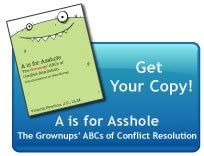School teachers, god bless them, pressed books into my hands that explored injustice, poverty, and life’s inevitable conflicts because I must have had a haunted, desperate look in my eyes by age seven or eight.
I promised myself then I would never underestimate childrens’ search for a better way than the way they observe their parents and their parents’ friends behaving, which, in my case, was by shouting, screaming, crying, withdrawing, saying “everything’s alright” when it clearly wasn’t and, in extremis, throwing hard objects across our long living in the picture perfect Southern California ranch house in which my sister and I were raised (“by wolverines” as Nathan Lane once said to Actors’ Studio interrogator James Lipton).
Look no further for the children you teach with passionate intensity in their eyes and an insatiable demand for more reading material.
Over at Educators for Social Responsibility, the staff recommends young people’s literature with peacemaking a conflict resolution themes. See excerpt below.
Book by Book: An Annotated Guide to Young People’s Literature with Peacemaking and Conflict Resolution Themes is a valuable resource for librarians, teachers, guidance counselors, and parents to find books to complement the standard language arts curriculum for teaching important peacemaking and social and emotional learning concepts. Written by a veteran peace educator, Book by Book leads adults to children’s literature that will help students explore themes related to conflict and its resolution, social justice, and appreciation for diversity.
By the way, like many children before and after me, I found some of the answers in To Kill a Mockingbird ~ handed to me by the fifth grade teacher the year it was published; A Tree Grows in Brooklyn; A Separate Peace; and everything ever written my J.D. Salinger.
I still search books and blogs and academic papers, magazine, television documentaries, films and blogs for the “answer.” And I have found and discarded and once again picked up and re-read and annotated the wisdom contained in books with the same avidity as I did so as a child.
I owe my elementary school teachers for this. And middle and high schools and sometimes even my college professors, law school profs and dispute resolution coaches. But most of all, I owe literature. And for that, I am very very grateful.

Leave a comment